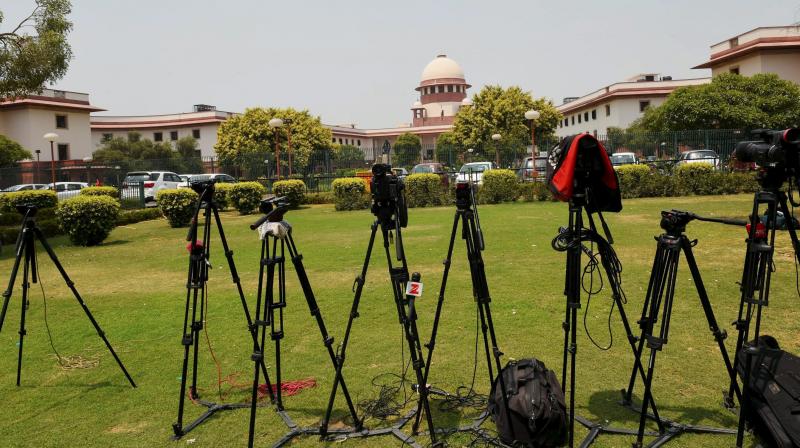Can woman say no to triple talaq, Supreme Court asks AIMPLB
Mr Sibal compared the Muslim community to small birds and said the community's nests must have the Supreme Court's protection.

New Delhi: Even as the All India Muslim Personal Law Board asserted on Wednesday that triple talaq was dying and the court should keep its “hands off” from deciding the issue, the Supreme Court asked the AIMPLB whether a woman can be given the option of saying “no” to the contentious practice at the time of nikahnama (Islamic marriage contract).
Chief Justice J.S. Khehar heading the bench suggested to senior advocate Kapil Sibal, representing the AIMPLB, if all qazis can be asked to include this condition at the time of marriage.
The Chief Justice of India told the counsel, “Is it possible that Muslim women are given an option to say no to triple talaq at the time of execution of nikahnama. Don’t infer anything from our suggestion.”
Mr Sibal welcomed the suggestion and said there were questions if the qazis would be bound by the AIMPLB’s directive to give brides the choice. He said the All India Muslim Personal Law Board would respond to this suggestion after talking to all its members.
Mr Sibal drew the court’s attention to a resolution passed by the All India Muslim Personal Law Board on April 14 this year that called triple talaq a sin and asked the community to boycott the person who invoked it.
He said, “When the court takes up the issue of triple talaq suo motu, it sends a wrong impression as if every member of the community wakes up in the morning and does it (divorces his wife).”
Cautioning the court from deciding the issue, Mr Sibal said it could lead to a backlash in the Muslim community, which might see its rights being infringed upon and therefore resort to other practices like polygamy and oral divorce.
As it is, triple talaq is practiced by a “minuscule portion” of the Muslim community, he said.
Mr Sibal compared the Muslim community to small birds and said the community's nests must have the Supreme Court's protection.
The Muslim community’s faith in the Supreme Court for the last 67 years is fundamental and that it is this faith that makes the country vibrant, he said.
He said towards the end of his arguments that triple talaq was admittedly an undesirable practice but the community should take the first step to stop it.
Quoting a survey report, Mr Sibal said instant triple talaq was not a popular way to end a marriage. He said of the 371 divorces reported, only one person used triple talaq and such cases accounted for only 0.44% of divorces among Muslims.

